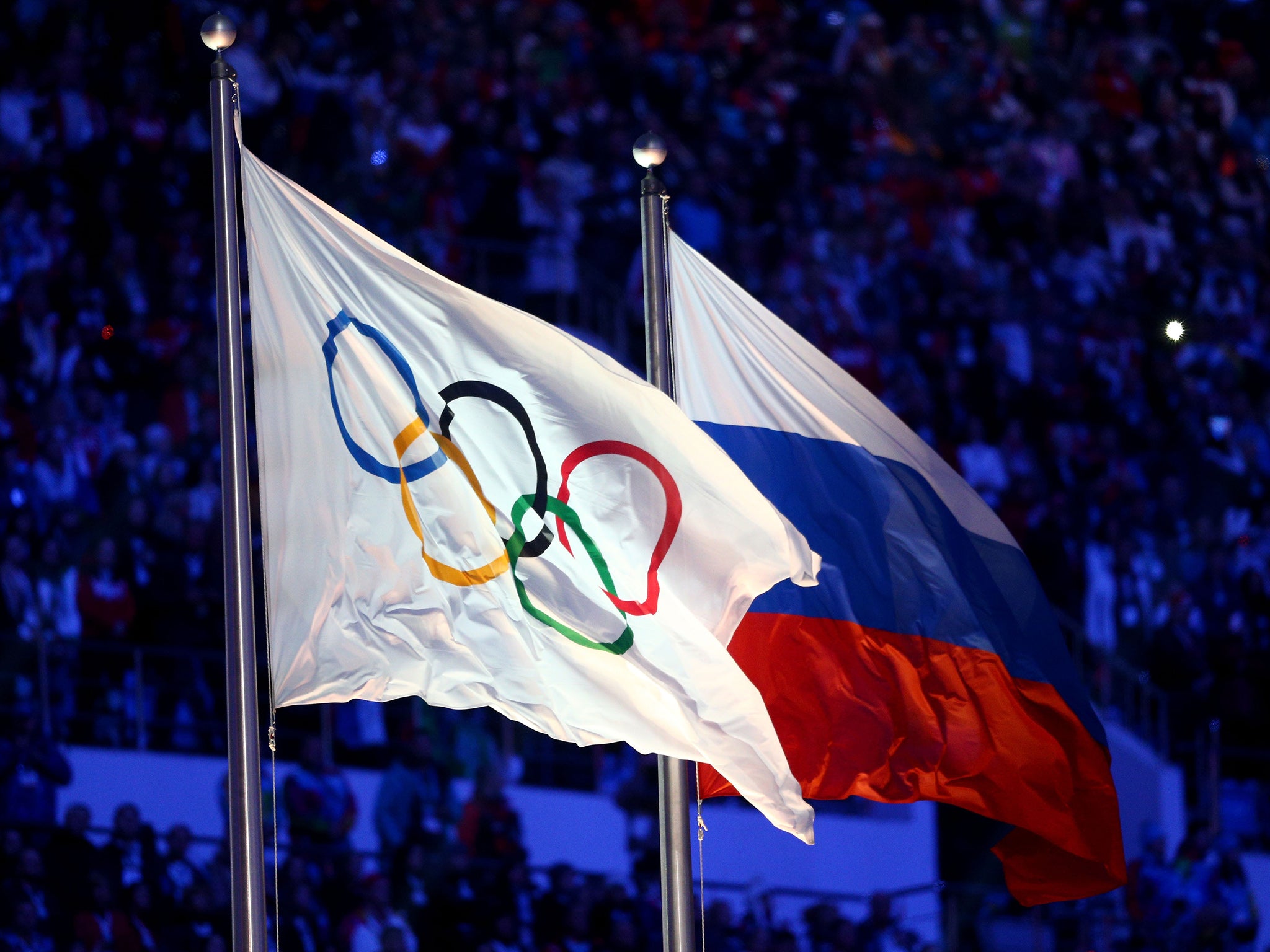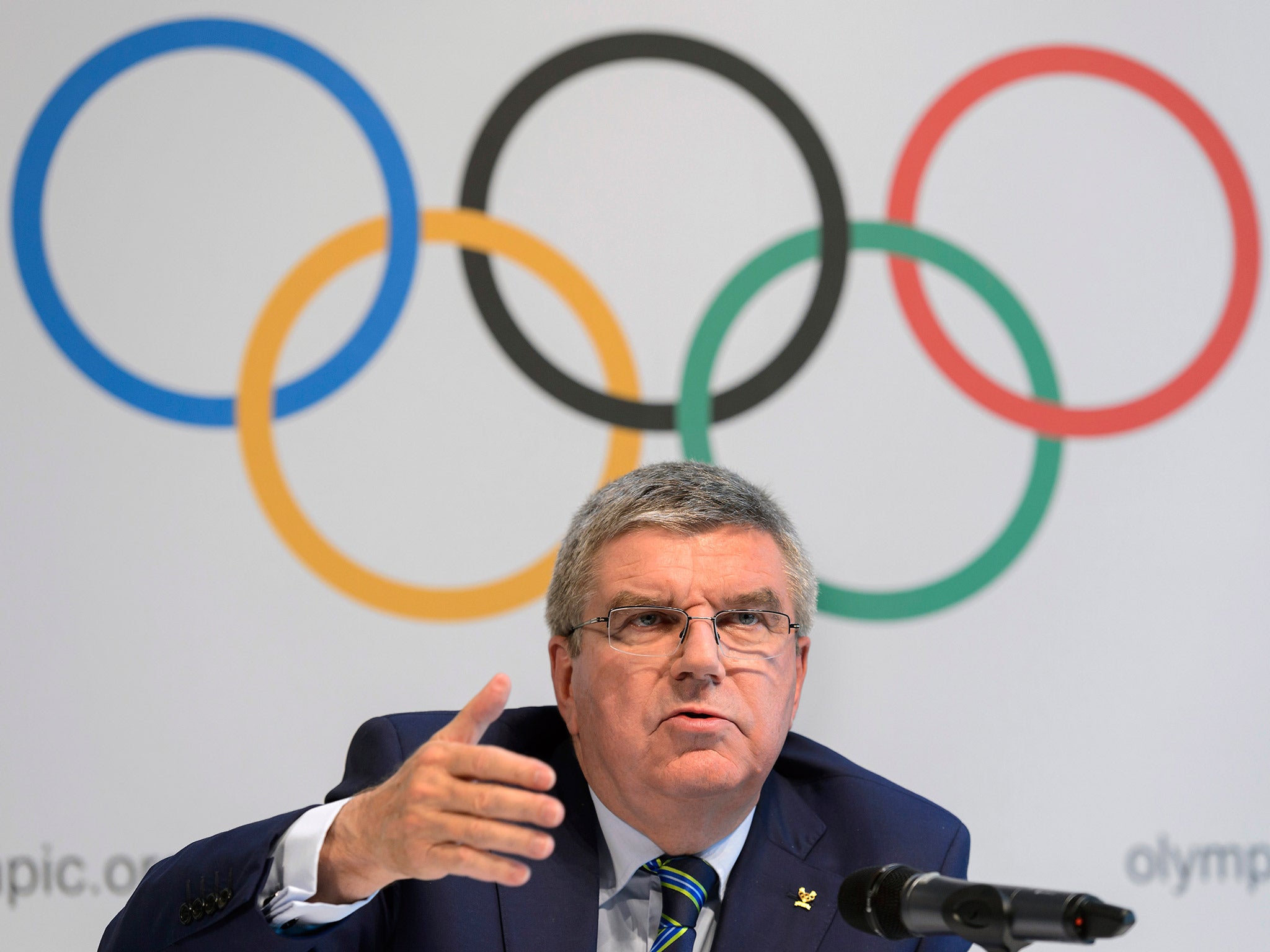Russia could face complete Rio 2016 Olympic ban if Sochi 2014 allegations of state-sponsored doping are proven
The World Anti-Doping Agency will release details about the 2014 Winter Olympics on Monday

Your support helps us to tell the story
From reproductive rights to climate change to Big Tech, The Independent is on the ground when the story is developing. Whether it's investigating the financials of Elon Musk's pro-Trump PAC or producing our latest documentary, 'The A Word', which shines a light on the American women fighting for reproductive rights, we know how important it is to parse out the facts from the messaging.
At such a critical moment in US history, we need reporters on the ground. Your donation allows us to keep sending journalists to speak to both sides of the story.
The Independent is trusted by Americans across the entire political spectrum. And unlike many other quality news outlets, we choose not to lock Americans out of our reporting and analysis with paywalls. We believe quality journalism should be available to everyone, paid for by those who can afford it.
Your support makes all the difference.Russia could face renewed calls for a complete Olympic ban if allegations of state-sponsored doping at the Sochi Winter Olympics in 2014 are proven today.
An independent commission set up by the World Anti-Doping Agency (WADA) has been investigating the claims and is now set to publish its findings.
Currently, only Russian track and field athletes are barred from competing in Rio after athletics' world governing body the IAAF voted last month to maintain a global competition ban on the All-Russia Athletic Federation.
A small number of Russian athletes who can prove they have a verifiable doping-free history will be allowed to compete under the International Olympic Committee (IOC) flag.
The Russian weightlifting team is also facing the prospect of a ban from Rio after repeated anti-doping violations.
So far IOC president Thomas Bach has resisted calls for more extensive bans, maintaining the innocence of those athletes who are not breaking anti-doping rules must be respected.
Bach insisted last week: "What we have to do is take decisions based on facts and to find the right balance between a collective responsibility and individual justice."
But any particularly damning revelations contained in today's report are likely to lead to more pressure on the IOC or individual federations to take a harder line on Russia's participation in the Games.

The commission, headed by Dr Richard McLaren, has primarily been looking into claims made by the former director of the WADA-accredited laboratory in Moscow, Grigory Rodchenkov, that he doped dozens of athletes, including at least 15 medallists, in the build-up to the Sochi 2014 Winter Games.
Rodchenkov told The New York Times in May that he did this in concert with the Ministry of Sport and that he also doped athletes before London 2012, the 2013 World Athletics Championships in Moscow and 2015 World Swimming Championships in Kazan.
Russia is currently challenging the ban on track and field athletes at the Court of Arbitration for Sport, with the tribunal expected to conclude on July 21.
PA
Join our commenting forum
Join thought-provoking conversations, follow other Independent readers and see their replies
Comments